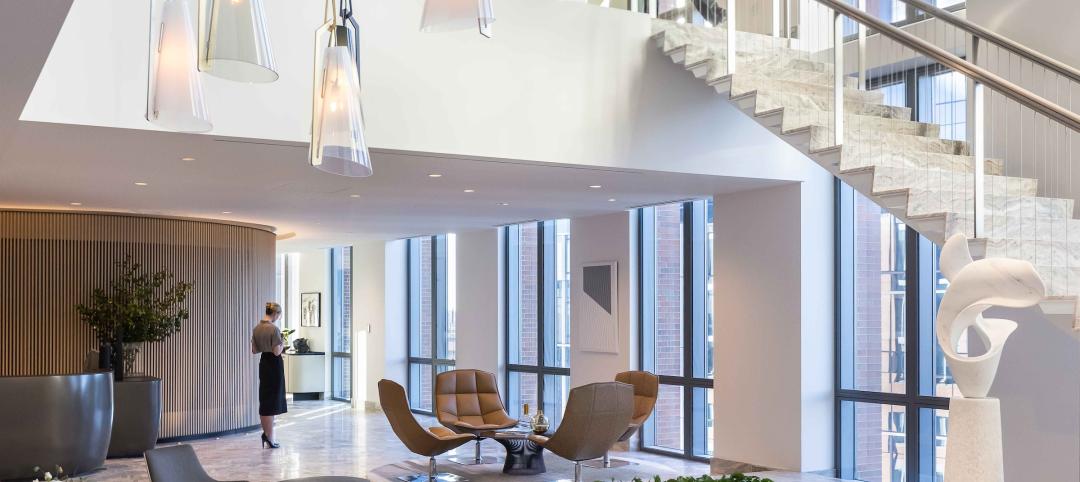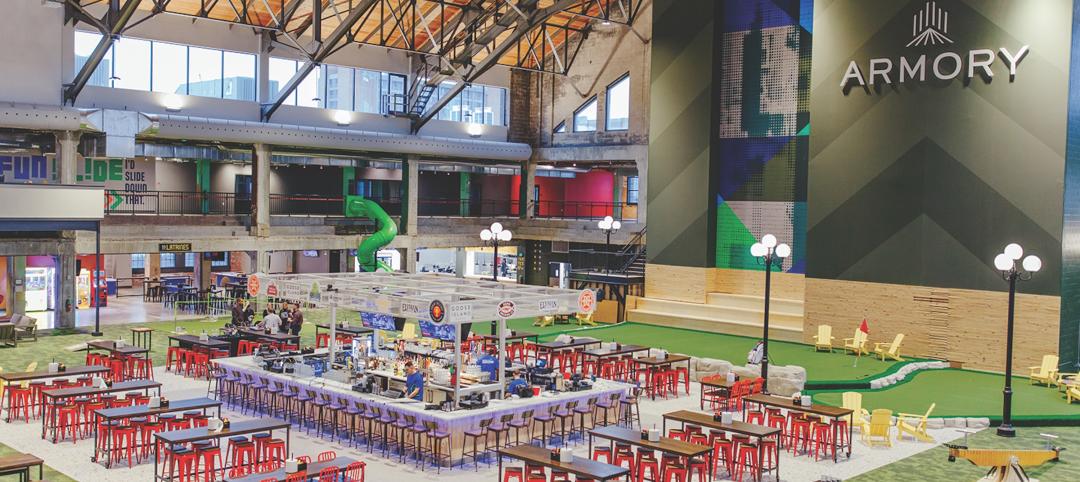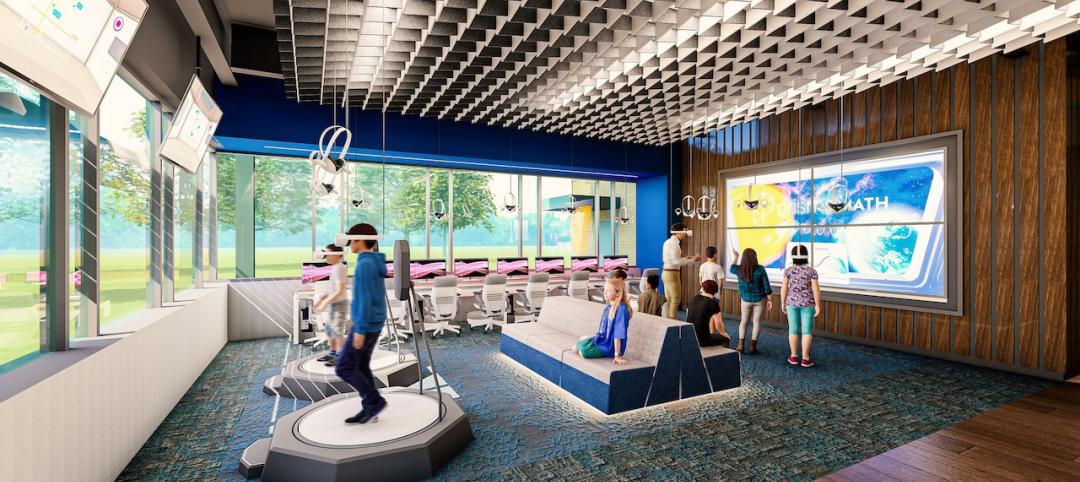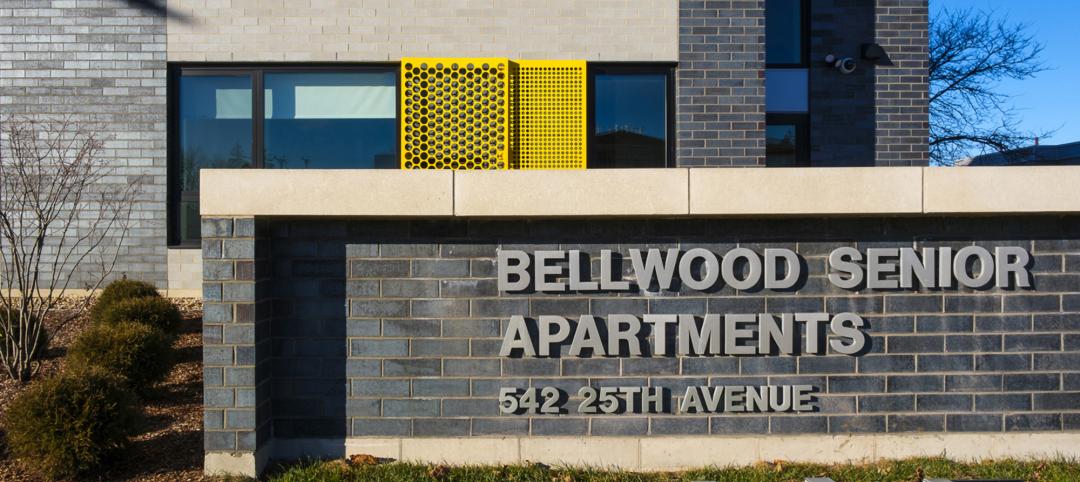BD+C: How is the market for design services in Indianapolis these days? What’s in demand? How is business holding up?
Sanford E. Garner: We received a nice influx of ARRA money, mostly for transportation projects, but more than likely when that work is done, a lot of contractors are going to be wondering where they’re going to get work. The commercial office market is soft. The single-family housing market seems to be turning positive, and there are still a number of condo projects going to rental—the banks are not as desirous of financing condominiums.
We’re fortunate in being in the third phase of a capital improvement program for our consolidated schools system, so there’s a reasonable amount of work for K-12. Higher education seems to be opening up a bit in RFPs and projects. The area that we’re seeing a lot of work in is anything that is tax-credit related, such as tax-related low-income housing projects, even more so than mixed-income. That’s pretty strong.
BD+C: What’s about other building sectors in Indy?
SEG: We’ve finished the majority of our major public-based projects—a new basketball arena, the football stadium, a new convention center, and a new airport—and I don’t imagine we’ll have anything that large for a while. However, we are working on our county hospital [the new Wishard Hospital, with 315 in-patient and 200 outpatient beds, a 2,400-car parking garage, a 90-bed emergency department, a women’s health clinic, and a central energy plant, currently under construction and seeking LEED Silver certification, financed through a $754 million referendum in 2009]. There’s also a new FBI field office [a $39.8 million project northeast of the city] and some court buildings.
We’re starting to see a few more developer-led projects, in particular the North of South project, where Eli Lilly is working with a developer [Buckingham Companies] to develop housing for their employees [320 rental units]. It will also have a boutique hotel [from Dolce Hotels & Resorts], 40,000 sf of retail and parking, and a full-service Y [a new 75,000-sf facility].
BD+C: Your Fall Creek Place mixed-use housing project won awards from the NAHB, Professional Builder, the Urban Land Institute, and the American Planning Association. What lessons did you learn from it?
SEG: One of the lessons is that we need to address potential problems like gentrification early in the process. In the case of Fall Creek, 51% of the homeowners were 80% below area median income (AMI), with a five-year tax abatement. It was hugely successful—we sold out phase one in about eight months, but the AMI kept increasing, and you’re coming off a tax abatement in year six, just before the market crashed. So, for mixed-income projects like this, you might want to consider looking at a 10- to 15-year period. We tried to do a good job with gentrification going in, but any time you significantly increase the value of surrounding properties it’s going to increase property taxes. Having that kind of discussion early on was hugely important.
Another lesson is that private-sector development expertise is a must-have. We spent a lot of time trying to get the private sector involved. We succeeded in engaging several developers that were relative newcomers to this type of project, which meant having to do a lot of education.
We also learned that the greatest marketing tool is always visual impact. We had six prototype houses and two other projects from developers, all adjacent to historic buildings that were being rehabbed. We had a nice mass of redevelopment going on, and that lent confidence to the project.
The other thing that we did well in this case was maximizing public/private partnerships. The city leveraged its relationship with the utility companies to supply incentives, and we worked with the banks to provide pre-approved loans for a point or so below prime. Financial incentives like that are absolutely necessary for mixed-income projects.
BD+C: You spoke at your alma mater, Howard University, recently on “the profitability of diversity”? What did you mean by that phrase?
SEG: We are at the point where companies are realizing that it can be profitable to be diverse—in gender, race, religion, sexual orientation. In the design industry, the better your understanding of those individuals or cultures or religions, the better you’re going to be able to market to them.
There’s even the profitability of diversification in your company. Our firm started with architecture and added interiors, urban planning, furniture design, graphics and communications, and construction observation for flat work. Within a changing market, there is a benefit of being a generalist, but there’s also need for specificity within areas of our industry.
BD+C: As president, what are your objectives for the National Organization of Minority Architects?
SEG: 2012 will be our 40th anniversary. We are transitioning from a more socially based organization into more of a professional organization. We have operated more as a social organization, since many of our members are also AIA members. We are at the point where we are changing ourselves to purposely become more deliberate in what we do, running NOMA truly as a nonprofit, to leverage what we have as an organization.
I call my leadership platform “MECCA”—mentorship, education, community, collaboration, and authority. We’re looking to strengthen our foundation, to give more scholarships to minority students, provide more economic backing for our members, and strengthen our affiliate relationships.
I also want to increase our value proposition: What benefit does NOMA bring to our members, with so many of our people out of work?
Related Stories
Luxury Residential | Jan 30, 2024
Lumen Fox Valley mall-to-apartments conversion completes interiors
Architecture and interior design firm Morgante Wilson Architects (MWA) today released photos of its completed interiors work at Lumen Fox Valley, a 304-unit luxury rental community and mall-to-apartments conversion.
Airports | Jan 30, 2024
Rafael Viñoly Architects’ design for the new Florence, Italy, airport terminal will feature a rooftop vineyard
At Florence, Italy’s Aeroporto Amerigo Vespucci, the new international airport terminal will feature a fully operating vineyard on the facility’s rooftop. Designed by Rafael Viñoly Architects, the terminal is expected to see over 5.9 million passengers annually. Renderings for the project have recently been released.
Giants 400 | Jan 29, 2024
Top 160 Workplace Interior Architecture Firms for 2023
Gensler, Interior Architects, HOK, SmithGroup, and Perkins&Will top BD+C's ranking of the nation's largest workplace interior and interior fitout architecture and architecture engineering (AE) firms for 2023, as reported in the 2023 Giants 400 Report.
Mixed-Use | Jan 29, 2024
12 U.S. markets where entertainment districts are under consideration or construction
The Pomp, a 223-acre district located 10 miles north of Fort Lauderdale, Fla., and The Armory, a 225,000-sf dining and entertainment venue on six acres in St Louis, are among the top entertainment districts in the works across the U.S.
Laboratories | Jan 25, 2024
Tactical issues for renovating university research buildings
Matthew Plecity, AIA, ASLA, Principal, GBBN, highlights the connection between the built environment and laboratory research, and weighs the benefits of renovation vs. new construction.
K-12 Schools | Jan 25, 2024
Video: Research-based design for K-12 schools
Two experts from national architecture firm PBK discuss how behavioral research is benefiting the design of K-12 schools in Texas, Florida, and other states. Dan Boggio, AIA, LEED AP, NCARB, Founder & Executive Chair, PBK, and Melissa Turnbaugh, AIA, NCARB, Partner & National Education & Innovation Leader, PBK, speak with Robert Cassidy, Executive Editor, Building Design+Construction.
Women in Design+Construction | Jan 25, 2024
40 Under 40 Class of 2023 winner Kimberly Dowdell inaugurated as AIA 2024 President
The American Institute of Architects (AIA) has announced the inauguration of Kimberly Dowdell, AIA, NOMAC, NCARB, LEED AP BD+C, Principal and Director of Strategic Relationships at HOK and BD+C 40 Under 40 superstar, as its 100th president.
Senior Living Design | Jan 24, 2024
Former Walgreens becomes affordable senior living community
Evergreen Real Estate Group has announced the completion of Bellwood Senior Apartments. The 80-unit senior living community at 542 25th Ave. in Bellwood, Ill., provides independent living options for low-income seniors.
AEC Tech | Jan 24, 2024
4 ways AEC firms can benefit from digital transformation
While going digital might seem like a playground solely for industry giants, the truth is that any company can benefit from the power of technology.
Giants 400 | Jan 23, 2024
Top 60 Parking Structure Architecture Firms for 2023
Choate Parking Consultants, Page Southerland Page, Gensler, AO, and Elkus Manfredi Architects top BD+C's ranking of the nation's largest parking structure architecture and architecture engineering (AE) firms for 2023, as reported in the 2023 Giants 400 Report.

















